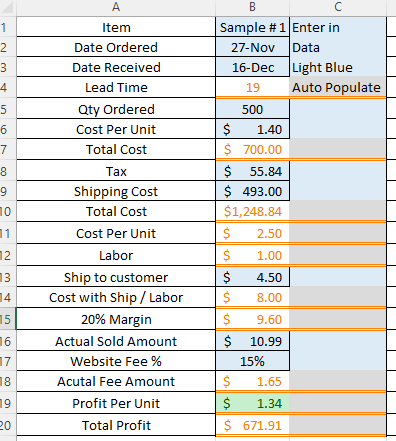DBB
Digital Documents for Business
Digital Documents for Business
Couldn't load pickup availability
The specific data that businesses need to track can vary depending on the industry, size, and nature of the business. However, there are several key categories of data that are generally important for most businesses. Here's a list of important data that businesses often need to track:
-
Financial Data:
- Revenue: Total income generated from sales or services.
- Expenses: Breakdown of costs, including operating expenses, salaries, and overhead.
- Profit and Loss: Net profit or loss calculated by subtracting expenses from revenue.
- Cash Flow: Inflows and outflows of cash over a specific period.
- Accounts Receivable/Payable: Amounts owed by customers and to suppliers.
-
Sales and Customer Data:
- Sales Metrics: Number of units sold, total sales, average transaction value.
- Customer Demographics: Information about customer age, location, preferences, etc.
- Customer Acquisition Cost (CAC): Cost associated with acquiring a new customer.
- Customer Lifetime Value (CLV): Predicted value of a customer over their entire relationship with the business.
-
Inventory and Supply Chain Data:
- Inventory Levels: Quantities and values of goods in stock.
- Stock Turnover: How quickly inventory is sold and replaced.
- Supplier Performance: Metrics related to supplier reliability and delivery times.
-
Employee and Human Resources Data:
- Employee Attendance: Record of employee work hours and attendance.
- Payroll Data: Employee salaries, wages, and benefits.
- Employee Performance: Performance reviews, goals, and achievements.
-
Marketing and Advertising Data:
- Marketing ROI: Return on investment from marketing campaigns.
- Conversion Rates: Percentage of leads that turn into customers.
- Website Analytics: Traffic, bounce rate, and user behavior on the company website.
-
Operational Data:
- Production Metrics: Efficiency, output, and quality of production processes.
- Project Management Metrics: Progress and completion of projects.
- IT Infrastructure: Performance and security of the company's technology systems.
-
Compliance and Legal Data:
- Compliance Records: Adherence to industry regulations and standards.
- Legal Documents: Contracts, agreements, and compliance documentation.
-
Customer Feedback and Satisfaction:
- Customer Surveys: Feedback on products, services, and overall satisfaction.
- Net Promoter Score (NPS): Measure of customer loyalty and likelihood to recommend.
-
Market and Industry Trends:
- Market Research: Information about industry trends, competitors, and market demand.
-
Environmental, Social, and Governance (ESG) Metrics:
- Sustainability Metrics: Environmental impact, social responsibility, and governance practices.
The specific data points within each category may vary, and businesses may choose to focus on those that are most relevant to their goals and operations. Additionally, data security and privacy considerations should always be taken into account when collecting and storing sensitive information.
Take a look at what is available, I'm adding digital documents weekly as they are made. If your business is looking for something unique, contact me and I'll make it a reality.
Share







